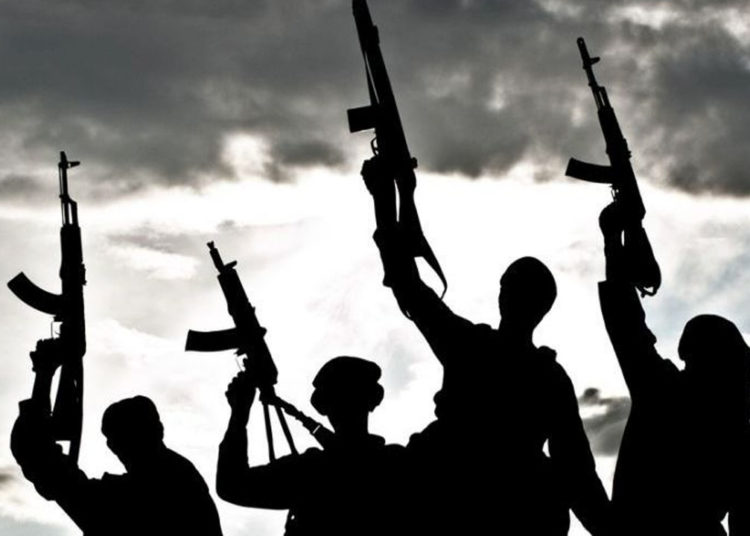It was heartwarming news when Aisha Grema one of the Chibok girl’s abductees was reportedly rescued by troops of Operation Hadin Kai, operating in the North-East region. She was rescued along with her four-year old child. She is the latest girl to be rescued by the military eight years after her abduction.
For many in Nigeria and around the world, the night of 14–15 April 2014 will never be forgotten. It was the day 276 female students aged from 16 to 18 were kidnapped by Boko Haram from the Government Girls Secondary School at the town of Chibok in Borno State. Prior to the raid, the school had been closed for four weeks due to deteriorating security conditions, but the girls were in attendance in order to take final exams in physics.
It was reported that the kidnappers broke into the school, pretending to be soldiers and dressed in matching military uniforms. The militants also engaged approximately 15 soldiers based in Chibok, who were unable to stop the attack as the militants had superior numbers and firepower, and no reinforcements were sent by the Military during the course of the attack.
Around the globe, their abduction attracted outrage, evoked sympathy and concern for the girls. This brought about the #bringbackourgirls movement that went viral on various social media platforms. Many leaders such as Barack Obama and his wife, along with several international and local celebrities, joined the movement in calling for the release of the girls.
After the abductions, reports had it that 57 of the girls escaped immediately following the incident by jumping from the trucks on which they were being transported, and others rescued by the military on various occasions. Hopes had been raised that the 219 remaining girls might be released; however, this never happened.
Recently though, we have been witnessing the rescue particularly by the military of the abducted school girls. Last month, the military announced that it had rescued two other kidnapped Chibok girls. The rescue of the girls comes barely two months after the army announced the rescue of one other girl from the same group. It also comes about five years after 81 of the school girls who were abducted by Boko Haram, were released.
When the current administration of President Muhammadu Buhari came to power in 2015, it began negotiation with the Boko Haram sect. This yielded the release of 21 of the girls in October 2016 and another 82 in May 2017. Not much has been heard of the remaining 112 girls except for the occasional rescue of some of them in recent times.
One can only imagine what Aisha must have been made to undergo during her 8-years in captivity. Her ordeal will no doubt be traumatic and she will be suffering from posttraumatic stress disorder. Unsurprisingly, she was found with her four-year-old child. This means that, 4-years after her abduction she gave birth. Alas we do not know if that was her only child since she was held captive.
One can only imagine what her parents and family would have gone through for the past eight years while she was at the mercy of her abductors. The psychological trauma and lack of closure would have adversely affected their psyche. Not knowing if they would ever see their daughter again would have been serious mental torture.
During the eight-year anniversary of the abduction in April, the Chibok community maintained that no fewer than 24 parents of the abducted students have died as a result of trauma while many others are now living with terminal ailments. It was said that they had died from high blood pressure and other heart-related ailments developed as a result of their missing daughters.
It has been widely acknowledged that the failure to act swiftly immediately after the abduction and months later contributed to the failure of rescuing the girls on time. Amnesty International condemned the government at the time for the abduction, stating that it believed that the Nigerian military had a four-hour advance warning of the kidnapping but failed to send reinforcements to protect the school. The military later confirmed that they had a four-hour advance notice of the attack but stated that their over-extended forces were unable to mobilize reinforcements.
The International Crisis Group in a statement last year blamed the Nigerian government for being slow to act and failing to prevent the attack at first. The group continues to call for the release, recovery and rehabilitation of the missing girls into society. They also ranked the incidence as one of the most notorious insurgent attacks in the country, which has taken a toll on over one million children mainly in the northeast and in neighboring countries including Cameroun, Niger, and Chad.
While it is a relief that we are witnessing another release, more has got to be done by the administration to rescue all the girls, other captives and adopt mechanisms that will deter such abductions in the future. The government has a responsibility of keeping hope alive that all the girls will finally be rescued or released.
The current government must not rest in its efforts to find the remaining Chibok girls that are still held captive by Boko Haram. Rescue efforts should be intensified and everything must be done to ensure that all the girls are brought back safely along with other people that have been held captive by dastard groups scattered around the Northeastern hinterlands.
It is refreshing to know that the trio Joy Bishara, Lydia Pogu and Mercy Paul eight years after, can smile at a future of value in a world of opportunities, having been lucky to jump off the ill-fated truck of the kidnappers on the night of the incident and ferried to the United States to further their education.
In 2021, Joy earned a Bachelor’s degree in Social Works, Lydia graduated with a legal studies degree while Mercy was on her journey to becoming a doctor. Sadly, the same cannot be said of the over 100 other girls with their lives derailed in continued captivity, eight years after their abduction.
If we are, as a people, never to lose hope, that hope can only be kept alive if we witness more accounts of abductees being released. But beyond that, we must stop the bleeding by eradicating this most unforgiving and unacceptable crime of kidnapping that seems adamant in establishing an enterprising foundation all over Nigeria.











